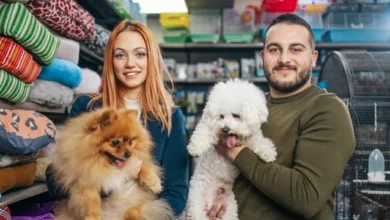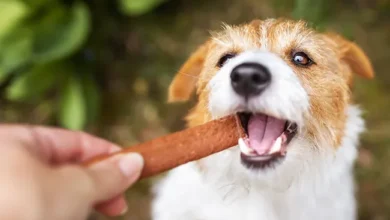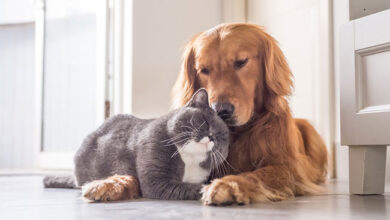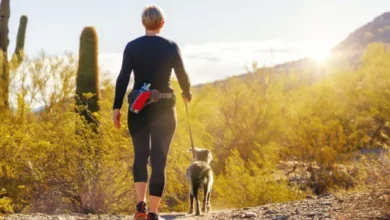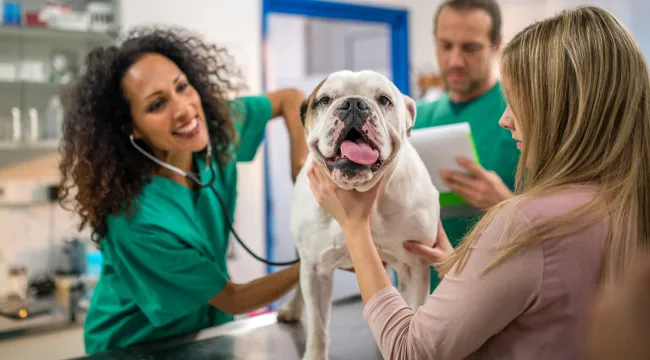
You could be antsy about meeting a vet when you have moved to a new location, or when you have been recommended to visit this new vet by someone else.
Since you are meeting this person for the first time, you may have lots of questions in your mind. Is he or she good? Will my pet receive proper treatment from this clinic?
How are the staff here? Are the medical equipment up-to-date and hygienic?
Your first response is probably to google the person and the clinic. Then, read through the webpage, and the review section. You should try to learn everything about this new vet you’re going to entrust your little buddy also.
Anyhow, if you’re not sure what information to seek out, here is a few questions that may help you.
Q1: How Long Has the Vet Been in Practice?
It may be too direct, but asking this question is going to help you decide whether you can trust the person or not. Some vets provide this information on their websites. However, if the data is not given, you can always ask the vet in person.
The length of a vet’s practice won’t necessarily mirror his aptitude. But sometimes, it does. Vets who have been practicing for a long time are usually more experienced than the ones who are new in the industry.
If your vet has been around for more than two years, you can trust him or her. Even so, you should also ask about the length of operation of the clinic. Management, staff control, and equipment maintenance are not the same when you compare a new and an old pet clinic.
Q2: Has He or She Dealt with My Breed Before?
It will give you peace of mind to know that the person has worked with breeds similar to your pet. If he or she hasn’t worked with your pet breed before, it’s still okay. But having someone who knows your pet thoroughly, and all the health conditions associated with it gives you some relief.
Q3: Who are the Specialists in the Clinic?
A pet clinic may have a few to several specialists depending on the size of the clinic. Your pet may have a serious illness, in which case, you want to find a vet who specializes in that particular area.
You should ask the clinic if they have someone specializing in a particular field — for instance, a vet expert in cardiology, oncology, or neurology.
Also, ask the institution whether they have a specialist on-site. Having a specialist on-site will ensure you won’t be referred to another vet from another clinic. The other clinic may be located far away.
Q4: Is a 24 Hours Emergency Service Available?
Small pet clinics may not have this service. Regardless, you should ask the clinic if they have this feature available or not.
You never know when accidents happen. Hence, it’s better to have the contact number of a 24 hours service pet clinic.
The last thing you want is for your dog to wait until the next day to visit the clinic. It’s too dangerous to take that risk.
Q5: What Sort of Health Exams are the Clinic Offering?
Health exams differ from one clinic to another. You should know which health exams are available at the clinic you’re visiting.
Some underlying health exams are body x rays, biochemistry profile, urinalysis, blood count, feces testing for parasites, test for heartworms, thyroid hormone testing, and getting vaccinations.
You don’t want to travel to another clinic to do some tests. But if you have no other choice, then you must.
Q6: What is the Best Source of Nutrition for Your Pet?
Almost every pet owner has questions about nutrition. The best answer always comes from the vet.
Ask your vet about which food is the best for your pet. If your pet has gone through a health check-up recently, it becomes easier for your vet to understand the condition of its body, and recommend proper food for growth and healing.
Sampling pet food is recommended, as pets also have preferences. Some food causes allergic reactions and food poisoning in pets, so you should watch out. Additionally, your vet can suggest a daily caloric intake of your pet by analyzing the body condition score (BCS) of your pet.
Q7: When Should I Spay or Neuter My Pet?
You need to spay or neuter your pet before it reaches sexual maturity. Spay your dog at around six months of age. But depending on your dog’s breed, the time may differ.
Cats can be sterilized from four months of age. If you have other pets, let the vet medically examine them before finalizing sterilization. Spaying and neutering can prevent fatal diseases, like uterine infections, mammary cancer, testicular, and prostate cancer.
Q8: What Preventative Methods can You Suggest for My Pet?
Pets need prevention from fleas, heartworm, and ticks. Flea eggs, larvae, and adult fleas can spread through clothing, shoes, carpets, and bags. Fleas issues can also lead to tapeworm infestation.
Ticks are known to cause Ehrlichia, Anaplasma, and Lyme disease, and the diseases are transmitted over time. Therefore, ask your vet to prescribe the right preventative medication for your pet, which may come in various forms – collars, topicals, or orals.
Young pets have to be vaccinated early on. Older ones need to be injected depending on their age, region of residence, and health condition.
Recommended vaccines for dogs are vaccines for Rabies, Distemper, Parvovirus, Parainfluenza, Adenovirus and Coronavirus. Most common vaccines for cats include vaccines for Panleukopenia, Calicivirus, feline viral rhinotracheitis and feline leukemia.
Q9: Is My Pet Due for a Dental Cleaning?
Even though it’s the pet owner’s responsibility to clean his or her pet’s teeth, it’s quite a challenge. That is why some owners prefer the vet help when it comes to dental hygiene.
You’ll be shocked to know that 70 percent of cats and 80 percent of dogs over the age of three have dental diseases. Bad breath is the first sign your pet needs a dental cleaning. You must address the issue before it turns into something serious, like diseases of the heart, kidney, and liver.
Q10: Which Toys are Suitable for My Pet?
Not many people know that some toys are harmful to their pets. Sadly, they find it out when it’s too late and their pet’s at the hospital.
Never buy toys with small objects that can obstruct the windpipe. Your pet may even tear off parts of a toy, which can, later on, end up choking it. So you need to keep an eye and make sure such small pieces are thrown away immediately.
Your vet can tell you which toys are most suited for your pet, according to age, athletic ability, and stamina. So ask the person and clear all your doubts.
What about the Mobile vet?
Pet care problem is now solved. Because vet service is now available at your doorstep, it has been possible for mobile vet service. A mobile vet can also give you the same service as the local vet. But before hiring a mobile vet, you need to know about them accurately. You should read some reviews about them in Google my business/Google local business, and Trust Pilot. The questions listed above will be the same in the case of the mobile vet as well.
If you are reading this article from Sydney, I have a good news for you. Many professional mobile vet in Sydney are passionate and excited to help interested people and to resolve their issues by their great caring unite. I will review and list down the other mobile vets in different cities if I get enough response from my reader. So please comment and ask me.
Final Thoughts
On the whole, these are just a few questions that you should ask your vet before you go home. You may even have more questions to ask. In this case, you should ask away.
No matter what you read on the internet, magazines, and commercial products, only a certified veterinarian can give you the appropriate advice you need to know about your pet’s health.
Besides, appointment fees are not cheap. Therefore, make the most of the expense by getting to know as much as you can.
